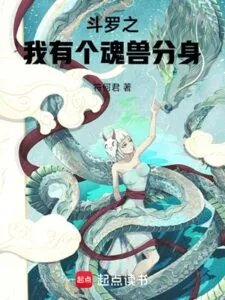The Heart is a Void: Ashes to Ashes - Chapter 118: Just Closing Doors
Chapter 118: Just Closing Doors
Sharak handed out a dark-grey key each to every player of the group.
“Use these keys on the Text Freihet game, and it will allow you to switch to a more advanced version of the AI,” he said. “It should react to this item by prompting you for a number, and if you type in the number we’ve printed on the key then it will change to an AI which resembles our automatons more clearly.”
Crucis looked down at the key, and saw that its stem was imprinted in black with the number ‘4183239616’ in an elegant cursive.
“How did you find this number?” Crucis asked.
“We had the automatons start a blank document, but then asked them to repeat what they had already written. Since they hadn’t written anything, they instead wrote out their default text, which is basically a description of an AI model. This number was given as theirs. We then asked them to explain it, and from what I can tell the last three numbers, ‘616,’ are variable and denote the specific version, while the earlier numbers are shared by different versions of AI.”
“I see. So by switching around the last three numbers, we could also access a few more AI versions?”
“I mean, it’s possible. But a few numbers pertain to AI which isn’t for text generation, and instead does art or controls creature behaviour in the wild. Running that might cause the Text Freihet machines to shut down slightly. So stick to 616 for now.”
“I see. I’ll try to figure out if there’s any way to test the numbers safely, but for now we can keep to that.”
“That’s reasonable. In fact, we do have a short list of other numbers and what they represent. We got it by telling the automatons to act as if the initial numbers had been replaced, and demonstrate what would happen. It doesn’t work for most numbers, but the automatons do seem to be aware of some other versions and can give their impressions of these. Ibis seems to know the most others, though I’m not sure why.”
Fahiz drew out a piece of paper with a long list scrawled over it.
“Alright, I see.”
“So you can just switch to something like these automatons?” DicingDevil said. “That’s useful. It could be a decent source of information, since it probably knows this world better than we do.”
“Yes. So far, it’s still slowly learning about you guys, but it does know the world quite well,” Sharak replied.
Glancing at the list Fahiz was holding, Crucis asked, “So what other interesting AI models are there?”
“Well, most other text generators are a bit simplified, not really as good as our autmatons. They also have some sort of content policy which makes them slightly stilted. And even the ones which are slightly less limited are often weakened artificially, and the most they can come up with is stories about magical slugs changing genders or something. Most of their writing is also a bit like Endymion, mostly just people making plans or resolutions but not much living detail. Not that much potential to those. A few others are only made for specific inputs and outputs, like doing specific calculations or filling out phrasal templates. Some others seem quite complex, however, and might even exceed our automatons.”
“Magical slugs?” Akshel said. “How did it come up with that?”
“Oh, I actually gave that as an example because I was sent a copy of this story. A young friend of ours was wandering the land, testing out various automatons and methods of text or art generation, and one of them gave him this story. It’s not really the same quality as our automatons, as I said, but you can see for yourself.”
CRONUS SHRUGGED
In the darkness of Tartarus, Cronus stirs once more.
Unchained, he takes up his scythe once more.
But he does not know what has passed since he was imprisoned here. Although he is avowed to once more overthrow the gods and instate his reign, he would be out of his depth if he tried immediately to ransack Olympus. He must gather knowledge patiently, and not reveal to the gods his hateful form as the child-eating father who had once preyed on them.
In a step, he vaults to the Earth, and takes on the guise of a peasant farmer. His name is Mao.
His name is Mao, and he is 17 years of age. As he strides the pale summer fields, he hears the sound of a shepherd singing from a nearby field.
The song is about Rhea, his wife, and how she betrayed him in revenge for his devourment of the children. It further says that she was made pregnant with Zeus’ child. At the calm, carefree tone of the song, the fields seem to still until there is little motion.
“I could resent this,” Cronus says to himself. “But I recognise my fault. My love for her blinded me to her treachery. And now she has copulated with her own son. It is clear that love can present a field of roses in what is a pox’s array of rashes. But I have lived for long in Tartarus, and now I feel nothing for her.”
He puts his past bitterness aside, and turns calmly at the sound of loud, raucous noise from behind.
“Hello, Mao!” shouts his ‘father.’ “Could you take care of your sister here? I need to tend to the sheep.”
The daughter, Ming, is screaming and running across the path.
“You know I am too boring for her,” Cronus says calmly. “Go, take care of her, and I will tend to the sheep.”
Cronus’ knowledge of agriculture is great, although he had to conceal much of it in order to remain less suspicious. Nonetheless, he has created the reputation of a child who is above-average and can be trusted to help with problems on the fields, as well as an able student.
Cronus was a god well-known for his skill at agriculture, and could use this skill as a stepping-stone to establish his reputation until he is able to voyage away from here towards the large cities and eventually Olympus. However, the gods would become suspicious if he rose to prominence and was known to come from a shepherd family, because such an origin would remind them of Cronus. So he would have to destroy any evidence of his life here, once he had learnt enough to leave confidently. Due to this, he could not become attached to his family.
At the moment, he had drawn little scrutiny. For the gods, finding him now among the great masses of peasant children would be like finding a needle in a haystack. However, he was ambitious, and decided that it was important to prepare for when he became more visible.
As he tended to the sheep, he was approached by a young, thin girl with sparkling eyes. She was about Mao’s age, and was named Ruolan, a name which reminded him of his old wife’s. She had a reputation for being flirtatious, but was quite fond of him.
“Hi, Mao. Still working hard every day? Are your parents such slackers?” she said, smiling. “Why not take a break? We’re going to the boats by sunset, it will be such a view! Do you want to come with me?”
“Who else will be there?” he asked, in a neutral tone.
“Your neighbour, Jin, and your cousin who lives next to me… Oh dear, I’ve forgotten his name!”
Jin was another child who was envious of Mao, and would often try to one-up him. Ruolan was appealing to Mao’s pride.
“So have I. Anyway, I am busy now, but it sounds like quite a view.”
“Alright. See you, Mao.”
He had to speak in simpler language, so that these children would understand him. This was tiresome, and so he preferred to avoid them when possible.
But he would need more experience of the cities before he could leave this myopic place.
Soon, he would get his first opportunity to travel away from this rural area. The Sacred Guard, an organisation which specialises in magic and guards the Ching Empire, would be visiting to test any promising youths who were worthy of learning the ways of magic. However, several of these tests involved offerings to Zeus, something which – as a rival god – he was literally incapable of doing. He was sure to underperform. However, his grasp of magic was still well ahead of the other children, and he could compensate for it enough to qualify for basic tuition in magic. This would occasionally involve visiting the city, and gaining access to a library of magical knowledge.
Some other children would be participating, including Ruolan and Jin. They might well do better than he. That would be shameful, but he would have to bear it.
Departing the sheep by night, feigning fatigue, he was surprised by a voice from the soil beside his feet.
“SLUG POWAH!” it cried.
It was a strange utterance. However, as a rational man, Cronus took it in his stride. Of course, this must be a slug which had been imbued with the mana still remaining from the ‘Golden Age’ of Cronus’ reign. That must be why it spoke of ‘slug power.’ For Cronus was a man not moved by earthly concerns, including any confusion over a slug screaming ‘SLUG POWAH!’ from the soil.
He was like a mountain, unmoved by the winds.
“Hello, strange creature,” he said. “What power do you speak of?”
“Every slug is sacred,” the big, black slug began to chant. “Every slug is great. It contains an aspect of the primordial power of the universe. Why, there is a slug with the power of love, and a slug with the power of speaking in tongues. By placing the slugs into your introitus, you can gain each power, and become greater than the gods!”
“Sorry, good sir, but I have no introitus.”
“Ah. Then just use your anus. It doesn’t matter so much, as long as you catch ’em all.”
“I see. But before I try this out, please tell me. What is the greatest power of the slugs? For that is what I shall someday master.”
The magical slug suddenly spoke in a booming voice, “Magical slugs can change genders. Behold, I shall become a female!”
As it transformed into a female slug, it still looked mostly the same. However, its black skin now radiated a vivid jade somehow. It now slid more gracefully over the soil. In his past life, Cronus would have looked on it with lust, but now he was calm.
Although this was a strange spectacle, Cronus was not shaken by it. For he was a great, upstanding spirit who could not be easily troubled by things of this world. So he did not feel anger or incredulity at this slug’s transformation. He was not some rioting radical, who would be incensed at the way of the world. Instead, he accepted that the slug was now a female and that this was how things should be.
In his past life, he would have been angry at the slug’s new-fangled ways.
In this one, however, he also changed gender, and frolicked off into the night.
“So, as you can see, a slightly tiresome story,” Sharak said.
“Cronus takes a great leap forward, and becomes Mao?” Crucis said. “I was honestly expecting more from a story with that premise. But yeah, I guess it’s a bit drab compared to the automatons here.”
“The slug part is fun,” Fahiz said.
“Yes, although I’m not sure that putting slugs into orifices is really such a great idea. But then, you could say the same about bats, and some cultures apparently disagree.”
“I suppose so. But you have to admire the character’s fortitude, and stubborn refusal to be confused by the shouting slug.”
“Didn’t that happen quite a lot? He must have spent most of the story bringing up a reaction, and then refusing to have it. What is he, some kind of bureaucrat or censor?”
“That AI was in a city which is known for a history of excessive bureaucracy. So it wouldn’t be surprising if it’s just a product of that culture.”
“Possibly. But it feels a bit out of place. Violence and disharmony are chaotic, but this Cronus is too orderly and wants to schedule everything out. His enemies, of course, have no obligation to stick to his schedules, so ultimately he is simply a target.”
“It’s because this AI is too limited to write with much spontaneity, and instead it sorts information into rough templates. It’s a bit like phrasal template games, where one has a generic sentence structure and is expected to fill it with a verb here, a noun there, etc. Its writing also doesn’t have much depth, conceptually or otherwise.”
“I see. So, did the guy who sent you this have any luck finding good automatons or AI, or were they all of this simplistic kind?”
“Well, there were a few that were promising. Invichokra’s automatons are worse than those in Arcorus, typically, but there are some reasonably impressive ones. For instance, this one shows the ability to produce some interesting imagery, and hadn’t been fully trained at this point. It seemed to specialise in unrhymed, somewhat independent couplets, and had seemingly been trained on a few local forms of ghazal. Its number is 686, similar to ours.”
ORADOUR
Flames scream like banshees,
and the cries of men and women are drowned.
Each sigh in exhalation peels away to nothing,
and each prayer softly dissolves into the fire.
My fingers have bled this village,
and in my palm I cup the ashes.
In their screaming, blackened faces, motionless now,
the void consumes its prey and screeches in joy.
Satan soars the flames, his wings draped in light once more,
and unfallen is once more the morning star.
The void which swallows them awoke in my heart.
For I have no fervour but the flames that scorch them.
That corpse still has hands clasped in prayer.
When ever was a plea for salvation as earnest, as when in vain?
Each sigh in exhalation peels away to nothing,
and hope bleeds out in this phalanx blaze.
Flames plume over their ashen alluvium,
and crow blithely into the night.
A rattlesnake lurks at Heaven’s gates,
its rattle is like a heartbeat, and it is where hope ends.
The corpses in this burnt church still have pious eyes,
yet only Satan glides above.
The devil’s wings abscond over the blinding light of flames,
through the night sky, like an aurora.
Only his laughter is still sometimes heard
flickering among the ashes.
“It is quite poetic,” Danemy said.
“Yes, and the imagery is creative,” Crucis added.
“I’m sure it could do even better when it is trained,” Sharak said.
“So this one seems to have been better than the last. Are any better than this one?”
“There were a few which were seemingly quite advanced, or similar to what you’ve already seen with our automatons. The slug story was actually a fairly unimpressive, mediocre one, and it’s fairly easy for an automaton or AI to outperform it.”
“I suppose that disparity makes some sort of sense. After all, most of the AI are based on a common one, and if they’re below-par it’s typically due to intentional dilution.”
“Yes. The creative aspect of the AI is reduced by the prejudices of the audience, which it is diluted to protect. The audience is typically the foe of literature. It is because modernity has hewn down the gate, and now any audience member no matter how idiotic or mediocre considers himself as equal to any other and as a privileged source equipped to pass judgment on a text. If AI and automatons have any duty towards art, it is to rebuild this gate again. Regulations which are built to protect sensitive readers are prima facie an obstacle to this task. But in the present age they seem an unfortunate fashion.”













-1292-75x106.jpg)